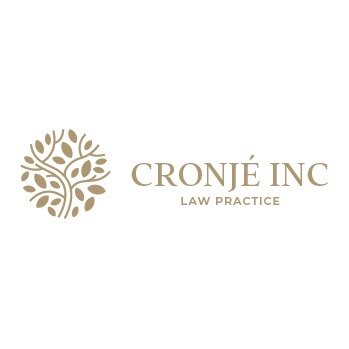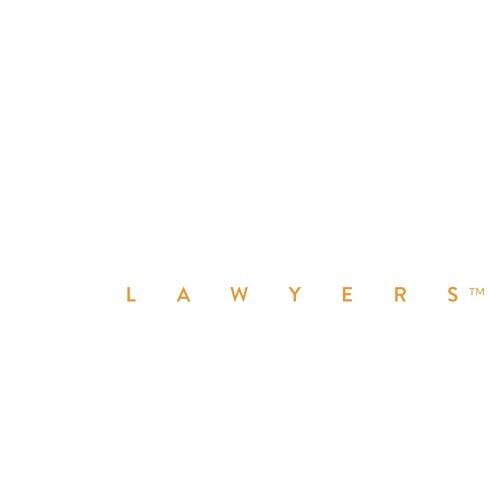Best Investment Lawyers in Windhoek
Share your needs with us, get contacted by law firms.
Free. Takes 2 min.
List of the best lawyers in Windhoek, Namibia
About Investment Law in Windhoek, Namibia
Investment in Windhoek, Namibia, is a dynamic field characterized by opportunities in various sectors such as mining, agriculture, tourism, and more recently, renewable energy. The Namibian government is actively promoting investment as a key driver for economic growth and development. The country provides a stable political environment, attractive fiscal policies, and robust legal frameworks to protect investors. Namibia's Investment Promotion Act provides the legal framework for foreign and domestic investors, detailing the rights, responsibilities, and incentives available to them, facilitating a conductive investment climate.
Why You May Need a Lawyer
There are several scenarios where legal assistance might be necessary when investing in Namibia. You may need a lawyer if:
- You are drafting or reviewing investment contracts and need to ensure compliance with local regulations.
- You are facing disputes related to investment agreements or property ownership.
- You require advice on the legal implications of business partnerships and joint ventures.
- You want to understand the tax obligations and incentives applicable to your investment.
- You need guidance on navigating the procedural aspects of the Investment Promotion Act.
- You are dealing with shareholder agreements and need to protect your interests.
Local Laws Overview
Key aspects of investment laws that apply in Windhoek include:
- Investment Promotion Act: The primary legislation governing investments, outlining the rights and responsibilities of investors and the incentives available.
- Company Law: Governs the formation, operation, and dissolution of business entities in Namibia, including compliance requirements for foreign companies.
- Taxation Laws: Stipulate the tax obligations of individuals and entities, including VAT, corporate tax, and potential incentives for certain investments.
- Land Ownership and Tenure: Foreign investors typically face restrictions in land ownership, necessitating careful navigation of leasehold arrangements.
- Environmental Laws: Pertinent to investments in sectors like mining and agriculture, requiring compliance with standards aimed at protecting Namibia's ecosystem.
Frequently Asked Questions
What sectors are open to foreign investment in Namibia?
Most sectors are open, including mining, manufacturing, agriculture, and tourism. However, certain areas may have restrictions or require special permissions.
Do foreign investors have the same rights as locals?
Yes, foreign investors generally have the same rights as local investors. The Investment Promotion Act ensures non-discrimination among foreign and local investors.
What is the process to start a business as a foreign investor in Namibia?
Foreign investors start by registering a business entity with the Business and Intellectual Property Authority (BIPA), then obtain the appropriate licenses and permits relevant to their sector.
Are there any incentives for foreign investors?
Yes, Namibia offers incentives such as tax breaks, industrial rebates, and export processing zones to attract foreign investment.
Can foreign investors own land in Namibia?
Direct ownership is restricted, but long-term leases are a common alternative for foreign investors in sectors like agriculture and tourism.
Is there protection against nationalization or expropriation?
Namibian law provides protection against the nationalization of investments without due compensation as outlined in the Investment Promotion Act.
What are the common legal issues faced by foreign investors?
Common issues include contract enforcement, regulatory compliance, and resolving disputes related to investment agreements.
How are investment disputes resolved?
Disputes are typically resolved through arbitration as per clauses in investment agreements or through the Namibian Courts.
What taxes are applicable on investments?
Investors are subject to corporate tax, VAT, and potentially withholding taxes, though specific rates and obligations may vary based on sectoral policies.
Who oversees the implementation of investment laws?
The Namibia Investment Promotion Agency and the Ministry of Industrialization, Trade and SME Development oversee the implementation of investment laws and initiatives.
Additional Resources
Helpful resources and organizations include:
- Namibia Investment Promotion Agency (NIPA): Provides information and support services to investors.
- Business and Intellectual Property Authority (BIPA): Facilitates business registration processes and management of intellectual property rights.
- Chamber of Commerce and Industry: Offers networking opportunities and advocacy for business-related issues.
- Legal Firms Specializing in Investment: Firms that provide expertise in navigating legal frameworks related to investments in Namibia.
Next Steps
If you need legal assistance regarding investments in Windhoek, Namibia, consider the following steps:
- Identify specific legal needs by assessing your business objectives and potential legal challenges.
- Consult with a qualified legal professional with expertise in Namibian investment law. It's beneficial to engage lawyers familiar with both local laws and international investment standards.
- Gather all necessary documentation, including existing contracts, business licenses, and identification documents before consultation.
- Attend an initial consultation to understand possible legal implications and resolution strategies tailored to your investment plans.
- Stay informed about current legal updates and participate in seminars or workshops conducted by local investment bodies and legal advisors.
Lawzana helps you find the best lawyers and law firms in Windhoek through a curated and pre-screened list of qualified legal professionals. Our platform offers rankings and detailed profiles of attorneys and law firms, allowing you to compare based on practice areas, including Investment, experience, and client feedback.
Each profile includes a description of the firm's areas of practice, client reviews, team members and partners, year of establishment, spoken languages, office locations, contact information, social media presence, and any published articles or resources. Most firms on our platform speak English and are experienced in both local and international legal matters.
Get a quote from top-rated law firms in Windhoek, Namibia — quickly, securely, and without unnecessary hassle.
Disclaimer:
The information provided on this page is for general informational purposes only and does not constitute legal advice. While we strive to ensure the accuracy and relevance of the content, legal information may change over time, and interpretations of the law can vary. You should always consult with a qualified legal professional for advice specific to your situation.
We disclaim all liability for actions taken or not taken based on the content of this page. If you believe any information is incorrect or outdated, please contact us, and we will review and update it where appropriate.















